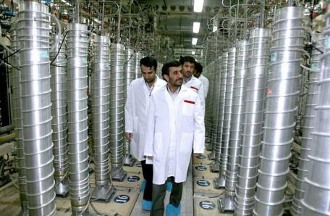Reports are coming in from a number of officials familiar with the upcoming IAEA report on Iran’s civilian uranium enrichment, saying that Iran’s advanced centrifuges are not working nearly as well as predicted, and the nation is continuing to rely on its older, less efficient ones.
 One former IAEA inspector, Olli Heinonen, said it wasn’t clear from what he’d seen if the problem was a lack of raw material or simply trouble with perfecting the design of the new centrifuges.
One former IAEA inspector, Olli Heinonen, said it wasn’t clear from what he’d seen if the problem was a lack of raw material or simply trouble with perfecting the design of the new centrifuges.
Iran has regularly announced new, even more advanced centrifuges, but diplomats say that the designs are actually attempts to fix flaws within a previous design. Western experts had been saying that for quite some time, and the IAEA report is simply expected to confirm this.
It is particularly important, however, because it comes at a time when the fact that Iran isn’t developing nuclear weapons is being shouted down with wild speculation about Iran’s supposedly rapidly advancing capabilities. The claims of Iran’s technological advancement being used to push for a military attack, besides being an extremely poor reason for a war, also appear to be suffering from the handicap of being untrue.


